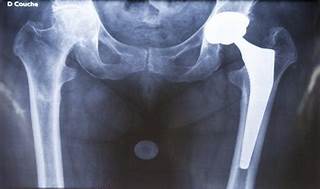A nurse is reviewing the medication history of a patient. The nurse should identify that which of the following medications places the patient at risk for hypokalemia?
Cimetidine 300 mg PO four times per day
Furosemide 80 mg PO daily
Meloxicam 7.5 mg PO once daily
Montelukast 10 mg to take daily
The Correct Answer is B
Choice A reason: Cimetidine is a medication used to treat ulcers and gastroesophageal reflux disease (GERD) and does not typically cause hypokalemia.
Choice B reason: Furosemide is a loop diuretic that can cause the excretion of potassium, leading to hypokalemia, which is a decrease in potassium levels in the blood.
Choice C reason: Meloxicam is a nonsteroidal anti-inflammatory drug (NSAID) and does not commonly cause hypokalemia.
Choice D reason: Montelukast is used to prevent asthma atacks and does not typically cause hypokalemia.
Nursing Test Bank
Naxlex Comprehensive Predictor Exams
Related Questions
Correct Answer is D
Explanation
Choice A reason: This statement is incorrect; patients have the right to refuse treatment at any time, even after signing the consent form.
Choice B reason: While the charge nurse may review the risks, it is typically the responsibility of the provider performing the procedure to ensure the patient understands the risks involved.
Choice C reason: A witness may be required to sign the consent form, but it does not necessarily have to be the patient's partner.
Choice D reason: It is important for the provider to discuss all treatment options with the patient, so they can make an informed decision.
Correct Answer is B
Explanation
Choice A reason: While bed rest may be required immediately after surgery, patients are typically encouraged to mobilize as soon as possible to prevent complications.
Choice B reason: Using a special soap the evening before surgery is a common preoperative instruction to reduce the risk of infection.
Choice C reason: A CPM machine is often used after hip replacement surgery to promote movement and prevent joint stiffness.
Choice D reason: A heating pad is generally not recommended on the operative site immediately after surgery due to the risk of burns and bleeding.
|
The correct answer is choice B. “You will use a special soap to shower with the evening before your surgery.” Choice A rationale: Remaining in bed for at least the first 24 hours is not typically recommended. Early mobilization is encouraged to prevent complications such as blood clots and to promote faster recovery. Choice B rationale: Using a special soap to shower with the evening before surgery is a common preoperative instruction. This helps reduce the risk of infection by decreasing the number of bacteria on the skin. Choice C rationale: Continuous passive motion (CPM) machines are generally used for knee replacement surgeries, not hip replacements. They help in maintaining joint mobility and preventing stiffness, but are not standard for hip surgeries. Choice D rationale: Using a heating pad on the operative site is not recommended as it can increase swelling and the risk of burns. Cold therapy is usually preferred to reduce pain and inflammation postoperatively. |
|
Whether you are a student looking to ace your exams or a practicing nurse seeking to enhance your expertise , our nursing education contents will empower you with the confidence and competence to make a difference in the lives of patients and become a respected leader in the healthcare field.
Visit Naxlex, invest in your future and unlock endless possibilities with our unparalleled nursing education contents today
Report Wrong Answer on the Current Question
Do you disagree with the answer? If yes, what is your expected answer? Explain.
Kindly be descriptive with the issue you are facing.

